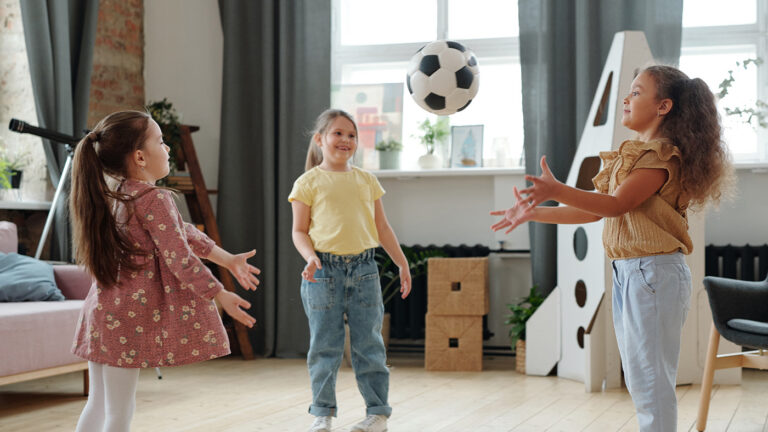Tummy time might have a fanciful name, but it’s serious business for your baby. Spending time on their belly every day is essential for their physical and cognitive development. It allows babies to see the world from a new perspective and develop muscle groups needed for crawling, looking around, and interacting with the world. So, what is tummy time? Tummy time is when you place your baby on their stomach while they are awake and supervised for brief periods each day. It’s your baby’s first and most foundational exercise!
What are the benefits of tummy time?
Babies spend most of the time on their backs, staring up at the ceiling. Their default experience of the world is looking up from below. Tummy time flips their perspective, allowing them to see the world from eye level, the way they’ll experience it for most of their lives.
Tummy time also helps babies develop neck, back, and shoulder muscles. They’ll build the muscles to roll over, sit, crawl, walk, and more. They’ll also practice lifting their heads and chests and reaching for toys and other objects.
Using tummy time early and often helps your baby develop and strengthen muscle groups, potentially preventing delays in motor development. It’s also a chance for you and your baby to interact in new and entertaining ways!
When and how should you start tummy time?
The duration and nature of tummy time will change as your baby grows and develops, but you can start tummy time as soon as you and your baby are home.
Newborns have little to no muscle control and need help getting started. For newborns, tummy time can double as skin-to-skin contact. Lay your baby belly down on your stomach or chest. They’ll be able to look at you and practice looking around while you both enjoy welcome cuddles.
As your baby gets older, lay a blanket on the ground and let your baby enjoy more independence during tummy time. Even at this stage, tummy time should always be supervised. Start with just a few minutes at a time, a few times a day, and build up from there. By the time your baby is 3 months old, they should spend about an hour on their tummy every day.
Tummy time will continue throughout your baby’s first year of life. After that, crawling and walking will provide the same benefits, and tummy time can take a back seat.
When and where should you do tummy time?
Always have tummy time on a low, flat surface. Avoid sofas, beds, or other raised surfaces. They may be soft and comfortable, but there’s the risk of a fall if your little one gets too mobile. Instead, spread a blanket on a low, open space.
Provide a rolled-up towel or blanket under their chest to help prop your baby up and keep their face off the ground. Tummy time should be as fun as possible. Plan tummy time after a diaper change, feeding, or nap to minimize distractions and irritations.
How can you make tummy time fun and safe for your baby?
Tummy time is important for your baby’s physical development, but it’s also an opportunity for you and your little one to connect and grow together. Babies may be unhappy or fight against tummy time at first.
Make tummy time worth looking forward to. Sing to your baby and have conversations, even if they are one-sided. Play games, make eye contact, point out and name objects, keep things engaging, and improve tummy time. Offer toys, rattles, and other engaging objects to help get them excited about tummy time. Placing a favored toy a short distance away may encourage your baby to reach out or crawl.
As your baby gets older, start extending and adding tummy time sessions. Pay attention to your baby during tummy time and adjust your tactics accordingly. Does your baby prefer tummy time at certain times of the day? Do they have favored toys, songs, or games? Take note of nonverbal cues and let them in on the planning.
Never leave your baby unsupervised during tummy time. If your baby falls asleep during tummy time, gently flip them onto their backs and let them sleep in place. There’s no need to wake them or move them to a crib; you can try tummy time again later.
Tummy time is a simple yet powerful way to help your baby grow and explore the world around them. With each session, your baby builds strength, coordination, and confidence—all essential skills for their next significant milestones. So, make it part of your daily routine, offer plenty of encouragement, and enjoy these sweet moments together!




